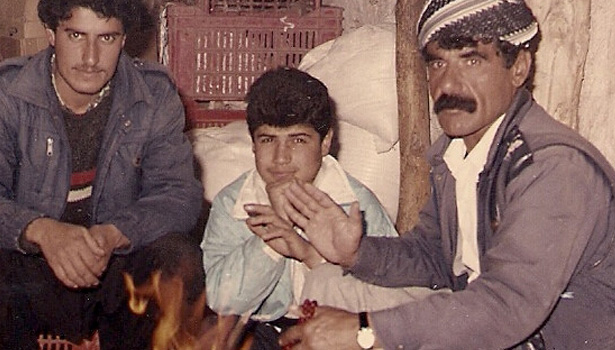Remembering: How Sabah Ahmad Lost his Childhood in 1991
Jul 29, 2010

Sabah Ahmad was 14 years old in 1991. He was living in Erbil, helping his mother to look after his family and at the same time was studying in school.
But Sabah, like hundreds of thousands of Kurds, fled from city to the mountain borders of Turkey and Iran in 1991. He was trying to escape the mass killings of civilians in the Kurdish region that were ordered by Saddam Hussein.
The exodus was sudden and disorganized -- Families walked through the mountains with little food and without clean water. There were many deaths along the way. Children and the elderly were weakened by the harsh trek. The borders were still full of land mines from the Iran-Iraq war, and army helicopters regularly bombed the long line of those trying to escape.
"Our family left with six other families, headed to Soran Road near the Iranian border," Sabah said. On the way out of Erbil, he saw the dead bodies of Peshmerga lining the streets. No one had time to stop and cover their bodies.
"We walked at least seven days without food," Sabah remembers. "Most of the time I wished to die because the life that we were living even animals could not bear."
His family continued to walk toward Iran. They stayed at the border and lived in a tent. It was very cold and they had little food.
"We continued living like that until the Americans forced the regime's tanks to retreat," he said. They heard that Erbil was taken over by Peshmerga and returned home by truck with other families. "We returned to Erbil to find our doors opened with our gold and money stolen," Sabah said.
When Sabah returned to Erbil, he didn't return to school. His family lost their savings during their journey and he was forced to work to support his parents and siblings. He never finished his education. "Even today, when I see any student on the street, I wish I could be them. I didn't have any chance to study, to develop myself. The power of Iraqi President Saddam Hussein affected all young Iraqis."
Today Sabah works as a cell phone salesman and hopes that Iraqi youth will never know the hardships he went through as a young man. "We have to tell the story generation after generation," Sabah said firmly. "To defend our country and so it does not happen again."
Above Photo: Sabah Ahmad and his family in Erbil, Iraq. (Photo courtesy Sabah Ahmad)
Add your comment